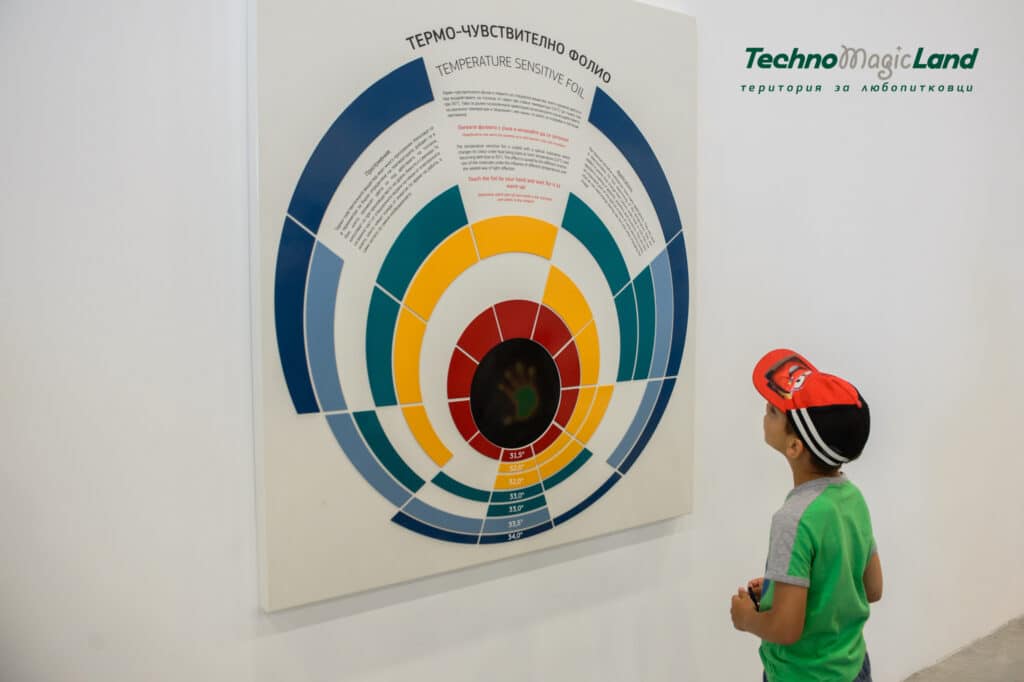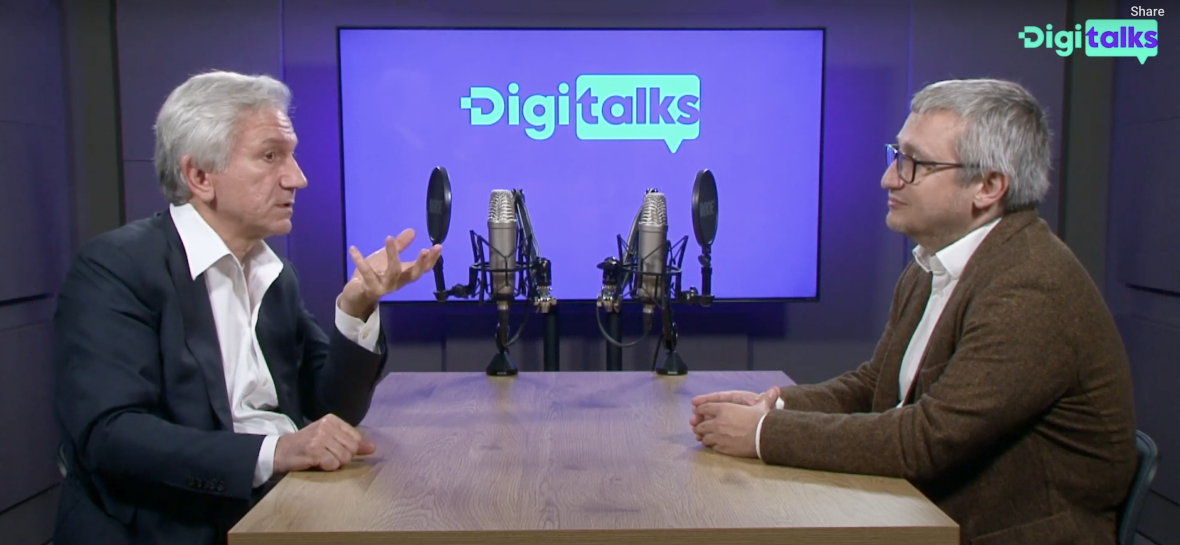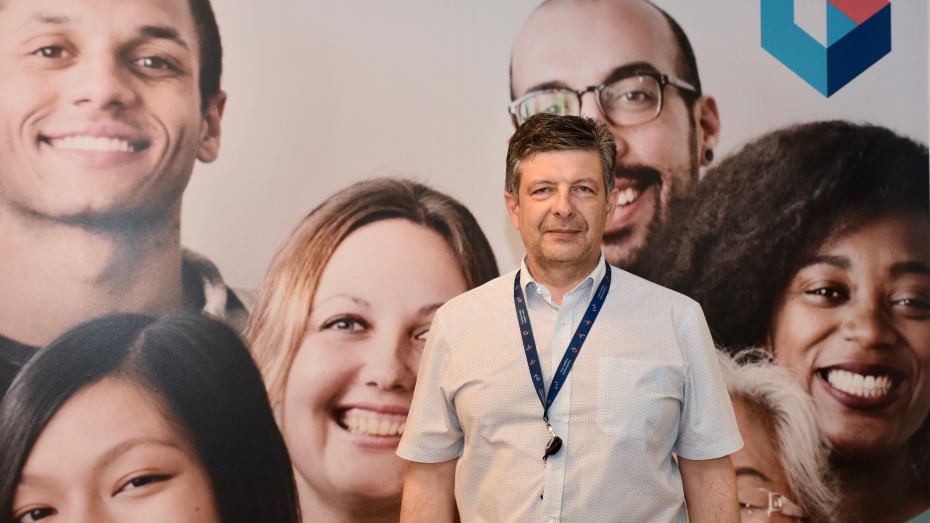IT companies raise their hand from the first line of desks
Interview by Ognian Trajanov for the special edition of the Manager magazine — Tech Connect
Many schools, universities and their alumni around the world are rethinking the way classes and exams are conducted. How do you work in a digital environment without sacrificing valuable human contact? Where many see problems, the Bulgarian Association for Information Technology (BAIT) finds challenges. Overcoming them will make educational institutions, their teachers, pupils and students even more confident about the future. We talk to Ognian Trajanov, Deputy Chairman of the Board of BAIT, owner and CEO of TechnoLogica EAD. For two consecutive school terms, he has been Chairman of the Board of Directors of BAIT, and currently serves as Vice-Chairman of the organisation. Ognian Trajanov is also Chairman of the Bulgarian Network of the UN Global Compact, whose main priority is education. Under his leadership, the National Plan of the CSR Europe’s Youth Pact project was developed. As BAIT Chairperson, he initiated and received support from the industry and the Ministry of Education for the creation of a national programme IT Business Teaches, which evolved into the Business Teaches programme. Ognian Trajanov graduated with a degree in engineering from the Technical University in Sofia, Block B and C — engineer in applied mathematics and computer science. He was a research fellow in the field of artificial intelligence. Mr. Trajanov has been a speaker at numerous events on leadership, innovation, education and corporate social responsibility. He is Honorary Consul General of the Philippines in Bulgaria.

What are the most innovative teaching approaches that you recognised in the Digital Innovators in Education competition?
Candidate teachers use a wide range of programs and applications to create multimedia educational resources. Their working methods combine various gamification approaches. This is a strategic attempt to improve systems, services, organisations and activities by creating experiences similar to those experienced when playing games to motivate and engage users. Soft skills are also taught through the use of current interactive methods and STEAM-based activities (Science, Technology, Engineering, the Arts and Math, or STEAM). The jury again this year saw interesting student team or student-teacher collaborations such as interactive books, guides, board and online games, presentations, videos, and creative projects and homework.
Alexandra Stefanova, who is an elementary teacher at the Hristo Botev Primary School in Krepost village, Dimitrovgrad municipality, ranked first in the Teaching Interactivity category. In her application, she presented more than 20 games and presentations developed for her students to learn the material taught in mathematics, Bulgarian language and even music. She said that education in the 21st century should imply new approaches, innovative thinking and creativity — not only in children but also in teachers. She also mentioned the possibilities of multimedia educational resources.
An increasing number of applicants ensure that their students have the opportunity to work in teams — in true collaborative spirit — to practice, explore, experiment, systematize, and solve challenges. Their willingness and efforts to offer a variety of learning activities, using a combination of approaches to hold students’ attention, is noticeable.
Our goal is to recognise and incentivize the creation of digital content and its skilful use. Creating it requires time and effort. The opportunity to present the results of this work, to receive recognition for it enhances motivation, and the reuse of such resources by other teachers improves the quality of the learning process.
Another example is Snezhana Ivanova, senior primary teacher at Lyuben Karavelov Primary School in Ruse. She won first place in the Multiplication of innovative teaching solutions category. Her video Searching for Angles at Home, which is intended for fourth graders. has been published on the e-learning information platform of the Ministry of Education and Science and contains a wealth of information about creative homework.
Considering the level of preparedness for distance learning that existed when the pandemic struck, Bulgarian teachers did very well overall. They saved the school year. We do not appraise the possibilities of distance teaching and learning in absolute terms. There is no question that distance learning is not the most effective form of education. However, it does have some specific advantages, whose areas of application and limitations we wish to reveal. And while the main focus in the 2020 edition of the competition the successful preparation and delivery of distance learning, in subsequent years we have aimed to recognise the penetration of all forms of digitalization in education.
The Business Teaches initiative created conditions for partnerships between different industries and schools in the framework of workshops in primary and secondary education. How did it come about and why has it transformed from its initial focus on the IT industry to its current more comprehensive version?
One of the major deficiencies of Bulgarian education is practical orientation. For students’ attention and motivation to be at a consistently high level, students need to understand why the topic of the lesson is important. Where, by whom, at what stage of life are the lessons learned going to be applied. Both our IT specialists in the role of teaching assistants and teachers after visiting companies are equipped with real examples that they can use in class. On the other hand, we cannot expect teachers to keep up with and be proficient in the rapidly changing information technologies that are continually increasing both in number and type. Through our program, their knowledge is enriched and updated by the companies. The most prominent form of practical focus is skills building, which vocational school students definitely need. Here, our colleagues in the role of teaching assistants are invaluable.
I believe that the collaboration between education and business through the National Business Teaches Programme is an example of success.

Where is the intersection between government, schools and private business in terms of this particular example of collaboration?
Education is a top priority for BAIT. Our members do not stand idly by complaining about the level and deficiencies of the education system. We actively support it with initiatives, innovative solutions, investments of labour, time and competences. Yes, the state of education overall is worrying in the extreme. The results of the latest external assessments are alarming and generally drown out the joyful thrill of the first school bell. And the entire society, all of us, must work and seek synergies for rapid and decisive improvement. There is no time or place for recriminations, we are all in the same boat and the boat is sinking.
Innovative companies have the capacity to recognize the root of challenges and untapped opportunities, address them with innovative solutions, manage the process and invest in their realization and transformation into good models. Responsible businesses also do this at the level of challenges and opportunities that face all of society. And the task of those entrusted to manage development and resources in a given sphere of public life — those in power — is to recognize good models and practices and scale them up, ensure that they have national coverage.
We have recognised the declining interest in science among children as the root of the problem of the lack of engineering talent and hence the modernisation and innovation capacity of our economy. We have analyzed and are now convinced that the most effective way to awaken the spark of curiosity and attraction to science and technology would be through attractive interactive experiments and the use of gamification.
We have invested in creating a STEM center for adolescents to experience the magic of science and technology, not just as consumers. But it also functions as an outlet, and it has proven its effectiveness over several years. The centre has been recognised by a number of schools as a place to hold lessons and classes. And this good model has been incorporated into the plans of the Ministry of Education. What remains to be done now is to manage the investment wisely at national level. Planning should not happen in the reverse — starting with bricks and mortar, investing in equipment and only then defining the content (experiments, methodology and way of conducting lessons) of STEM centres.
Without business engagement, sustainability and sustainable development cannot be ensured. If a business does not recognise a project as important and desirable, if it is not prepared to invest in it, then when the project runs out of funding — it dies or freezes at best. There are hundreds of examples of projects with EU funding that have this fate.
Institutions such as the Ministry of Education and schools create the environment and the prerequisites, but it is the teacher who has the leading role and responsibility, which is why the increase in teacher salaries are important, albeit long overdue. However, a salary in itself is not a guarantee of dedication to work. The aim of the competition is to give recognition and put the teaching profession back on its pedestal.
Do you foresee initiatives for universities as well?
The Digital Innovators in Education competition and the Business Teaches programme are aimed at school education and do not exhaust all forms of collaboration and support we are working on. Our partnership with universities has a much longer history and tradition. We currently aspire to stimulate integrated programmes between educational institutions, regardless of the form of ownership, nationality, degrees and sciences in which they specialise.
With greater reliance on new technologies for communications and education needs, is there a danger that the human factor will be left behind?
Technology cannot replace the human factor when it comes to raising and educating the young. Education is not only about training, but also about upbringing and imparting values. Technology can and does support information handling, modes of communication, free us from routine activities, speed up and enhance quality, but it cannot provide behavioural model, professional values and ethics. I’ll put it this way: technology makes our lives easier, culture more beautiful, and creativity in any field makes it meaningful.


